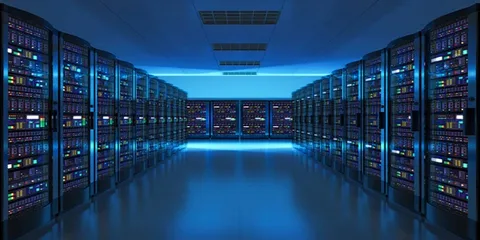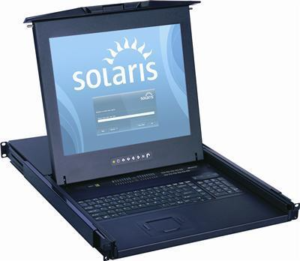
When it comes to selecting a server, whether for business or personal use, the variety of choices can be overwhelming.
How do you determine which server will best meet your needs? What are the key factors you should focus on to ensure optimal performance?
While speed is often a consideration, many other features play a critical role in your decision-making process. Choosing the right server is crucial to ensuring smooth and efficient operations.
Let us explore the seven essential features you should look for when selecting a server to help you make an informed and confident choice.
1. Performance And Processing Power
The first thing to consider when selecting a server is performance. How quickly can it handle tasks? Performance is often tied to processing power, measured by the CPU. Servers with powerful processors can handle complex tasks simultaneously. A 4U server offers ample space for adding processors and memory, making it ideal for handling large workloads and ensuring smooth operations.
- CPU cores and speed: Look for a server with a multi-core processor to handle high workloads. Higher speed (measured in GHz) is a key factor in determining how quickly the server can perform tasks.
- Memory (RAM): More RAM means the server can process more data at once. For demanding applications or databases, consider opting for 32GB or more.
- Storage: Ensure your server has adequate storage capacity with the option to expand.
Investing in a server with strong processing capabilities ensures your server will be able to meet growing demands and deliver consistent, high-performance results.
2. Scalability for Future Growth
As your business or usage grows, so will your need for resources. Scalability is one of the most important aspects of choosing a server. Can it grow with you? Whether you plan to add more storage, increase processing power, or handle more traffic, the server should be flexible enough to handle your future needs.
Why scalability matters:
- It prevents the need to replace servers as your business grows.
- It allows you to upgrade components like RAM, hard drives, and CPUs.
- Provides flexibility to scale based on changing demands, ensuring that you don’t overpay for unnecessary resources.
Scalability ensures that your server remains useful as your requirements evolve, giving you long-term value for your investment.
3. Reliability And Uptime
Imagine your server going down unexpectedly—how much would that cost you? A 2020 survey by Statista found that 25% of enterprises reported average hourly downtime costs between $301,000 and $400,000.
Downtime can be costly, which is why a reliable server is crucial. A 4U server, known for its high performance and durability, guarantees maximum uptime. Uptime refers to how long the server runs without interruption, and the higher the uptime percentage, the more reliable the server is.
Here are some key features that improve reliability:
- Redundant power supplies: In case one power supply fails, the second one kicks in to keep the server running.
- RAID configuration for data protection: Redundant Array of Independent Disks (RAID) keeps your data safe by duplicating it across multiple hard drives, preventing data loss.
- Remote monitoring tools: These help detect issues early, preventing major failures.
Servers with high uptime ensure that your operations continue without major disruptions.
4. Security Features
Security is non-negotiable when it comes to servers. With the increasing frequency of cyber-attacks, ensuring your server has robust security features is a must. From encryption to firewall protection, security features safeguard your valuable data from unauthorized access and cyber threats.
Here’s what you should look for in terms of security:
- Hardware-based security: Features like TPM (Trusted Platform Module) for hardware encryption ensure that data is protected at the most fundamental level.
- Software security: Ensure that the server supports reliable software-based security solutions, like antivirus, firewalls, and access control.
- Regular firmware updates: Keeping the server’s firmware updated helps patch vulnerabilities and keep your system secure.
A secure server protects your data and gives you peace of mind, knowing that your information is safe from malicious threats.
5. Energy Efficiency
With rising electricity costs, energy efficiency is becoming increasingly important. Data centers are significant consumers of energy worldwide. In 2022, they consumed between 260 to 360 terawatt-hours (TWh) of electricity, accounting for approximately 1 to 1.15% of global energy consumption.
Choosing a server that consumes less energy not only reduces your operating costs but also helps with environmental sustainability. Many modern servers come with energy-efficient components, reducing the need for excessive cooling systems.
Key features of energy-efficient servers include:
- Low-power processors that require less energy to operate.
- Efficient cooling systems that regulate the server’s temperature without using excessive power.
- Energy-efficient power supplies that convert electricity more efficiently, reducing energy waste.
By opting for an energy-efficient server, you save on electricity bills and reduce your carbon footprint, contributing to a greener environment.
6. Manageability and Ease of Use
Managing a server doesn’t have to be complex. The best servers are designed for easy management and maintenance. This means having an intuitive interface, remote access for quick troubleshooting, and simple software integration to ensure smooth operations.
Look for servers with:
- User-friendly interfaces: Control panels and dashboards that are easy to navigate, even for those without an IT background.
- Remote management capabilities: Allows you to monitor, manage, and troubleshoot servers without needing to be physically present.
- Automated backup systems: Ensures that your data is backed up regularly without manual intervention.
A server that’s easy to manage frees up your time and resources, allowing you to focus on running your business rather than managing complex IT systems.
7. Cost-Effectiveness
While high-end servers may offer top-notch features, they may also come with a hefty price tag. A 4U server can offer a cost-effective solution for businesses that need high capacity and performance without the excessive costs associated with premium models. It’s important to find a balance between cost and functionality. A cost-effective server meets your needs without overspending on unnecessary features.
When evaluating cost-effectiveness, consider:
- Initial purchase cost: Look at the upfront cost of the server and any associated installation fees.
- Maintenance and support costs: Consider the cost of long-term maintenance, upgrades, and technical support.
- Total cost of ownership (TCO): Assess the server’s overall value over its lifespan, including energy consumption and potential downtime.
Choosing the right server means finding one that offers the best value for your specific needs, not necessarily the one with the highest price tag.
Bottom Line
When purchasing a server, it’s essential to prioritize the right features to ensure that it meets your needs both now and in the future. If you’re looking for a more robust and scalable option, a 4U server could be the ideal solution. A 4U server offers more space for additional components, making it easier to scale as your business grows.
From performance and security to cost-effectiveness and ease of management, each of these seven features plays a vital role in ensuring that your server supports your business goals. By keeping these factors in mind, you’ll be able to select a server that offers great value, reliability, and long-term performance.






